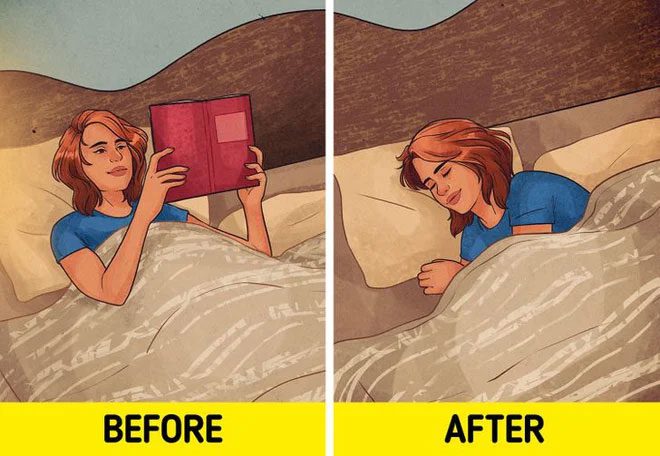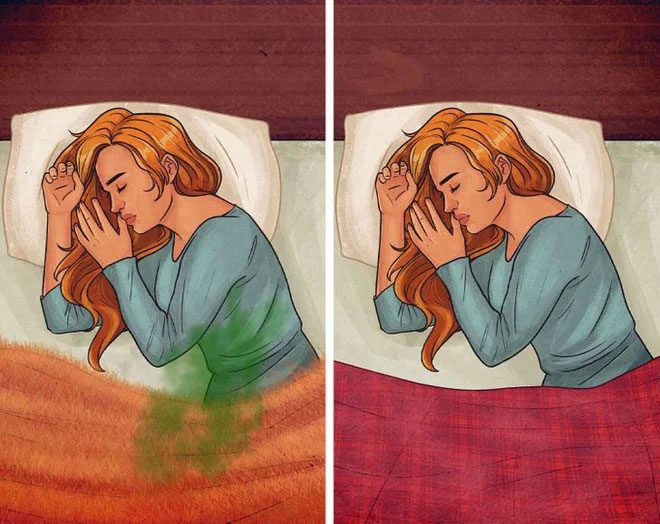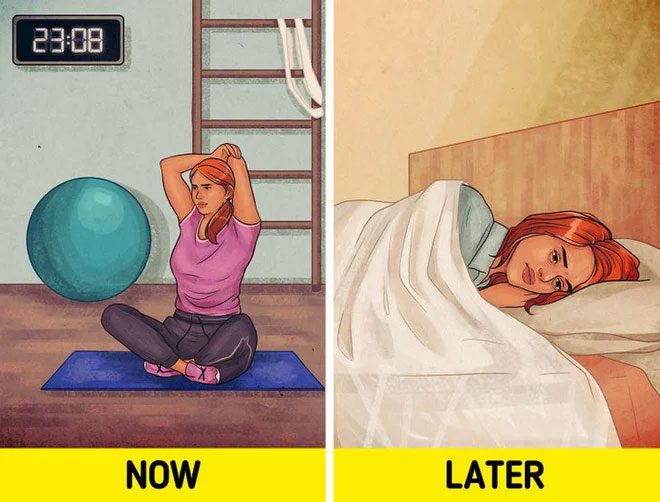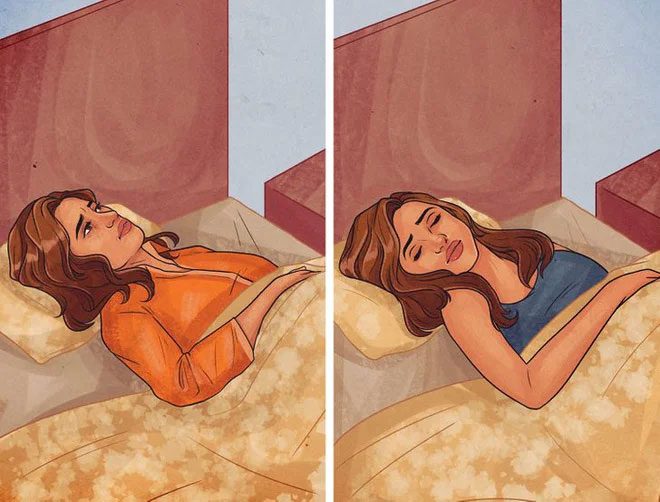Worries and stress can keep you tossing and turning at night, but some habits may unintentionally affect your sleep quality as well.
Here are some bedtime habits to avoid for a better night’s sleep
For the human body, sleep is one of the most crucial times of the day. However, studies show that up to 35% of adults sleep less than seven hours each night. While worries and stress can lead to insomnia, some seemingly good habits may inadvertently reduce our sleep quality.
1. Going to sleep as soon as you get into bed

At the end of a busy day, all you want to do is lay your head on the pillow and rest immediately, but this can inadvertently prevent you from achieving a restful sleep.
Instead, you should engage in some calming activities to help your brain relax before sleep, creating a distinction between day and night. Your bedtime routine could include a light snack, a warm bath, or reading a good book. These activities will help quiet your mind and make it easier to relax.
2. Drinking black tea before bed

Herbal tea is known for its soothing effects and has been used to treat insomnia for many years. While many types of tea, like chamomile or lavender, can help you relax and even improve sleep quality, some beverages have the opposite effect. For example, black tea contains a high amount of caffeine, which can lead to stress and insomnia. Therefore, be selective about the type of tea you drink in the evening.
3. Using the wrong type of blanket

Many of us can’t sleep without a blanket, so choosing the right one is crucial for a good night’s sleep. Typically, polyester blankets are easy to wash and care for, but they are not the best choice for restful sleep. Polyester is a synthetic material, meaning it doesn’t allow your body to regulate temperature, making you feel hot and sweaty.
Instead of buying a polyester blanket, opt for one made of wool or linen, as these materials keep you warm while being better for your skin.
4. Working out at night

Exercise helps you relax and alleviate stress, thereby improving your sleep. However, working out too late can do more harm than good by disrupting your sleep quality.
Going to the gym within an hour before bedtime won’t allow your body temperature to cool down, leading to restlessness and waking up during the night. If you are a night owl and prefer to exercise at night, stick to low-intensity workouts at least four hours before going to bed.
5. Wearing pajamas to bed

In the evening, there seems to be nothing better than slipping into your favorite pajamas and drifting off to sleep. However, some sleepwear can actually be too warm for your body, hindering your ability to achieve restful sleep. We sleep better when our body temperature slightly decreases, and if sleeping naked isn’t for you, choose lightweight sleepwear made from natural, breathable fabrics like linen or cotton instead of thick pajamas.


















































